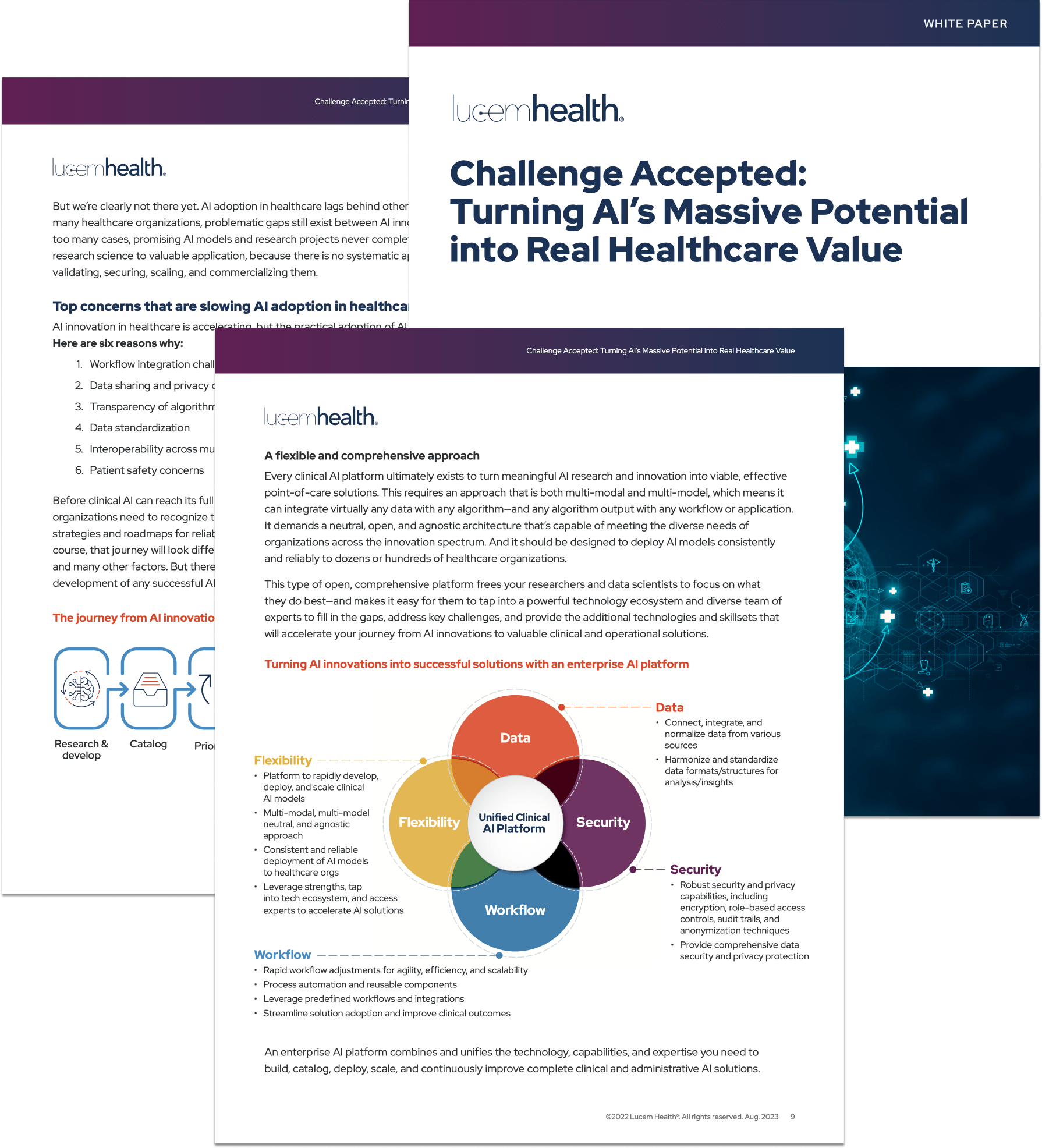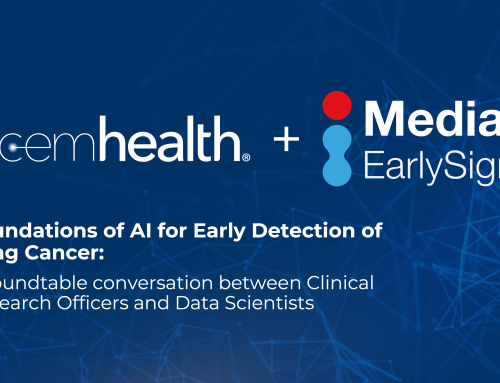
Developing an AI Roadmap for Healthcare Solutions
To put it bluntly – the journey from AI innovation to real-world application requires more than just AI model development. The key lies in architecting a well-defined AI roadmap for healthcare solutions. This strategic blueprint should help provider organizations transition from a narrow focus on model creation to developing holistic solutions that address genuine healthcare challenges.
Decentralization: A Challenge in The AI Roadmap for Healthcare Solutions
One major roadblock in taking AI models from research to widely used healthcare solutions is the decentralized nature of AI development. Often, there are multiple AI models and algorithms nested within different projects or labs, making it quite overwhelming to gauge their relevance and maturity. This issue poses a significant challenge when trying to compile and leverage the potential of these different AI resources, whether internally or commercializing externally.
Collaboration: A Vital Component
To construct an effective AI roadmap for healthcare solution development, a collaborative approach is paramount. This includes the participation of various stakeholders, such as data scientists, software developers, healthcare providers, and even patients. The broader insights from this collective approach allow for the tweaking of AI models to better meet the requirements of the end-users, delivering targeted and impactful solutions.
Constructing an Effective AI Roadmap for Healthcare Solutions
Effective AI roadmap construction for healthcare solutions involves a comprehensive cataloging of AI assets, fostering effective team collaborations, and intelligently implementing continuous improvement. By focusing on widely adoptable solutions and improving them over time rather than merely developing AI models in isolation, healthcare organizations can unlock extensive benefits that ripple out into the wider healthcare system.
The AI roadmap should aim to transform clinical applications. Integrating patient data for making advanced predictions is part of the answer – though models must be completely aligned in the context of their clinical settings. Thus, the AI roadmap for healthcare solutions is not just about creating AI models but about integrating AI into the existing clinical workflows gracefully.
Model Flexibility in The AI Roadmap for Healthcare Solutions
Under the strategic guidance of a well-structured AI roadmap for healthcare solutions, existing artificial intelligence models can unlock new levels of value through careful adaptation to serve different use-cases. For instance, consider an AI model that has been effective in early detection of diabetes among a general demographic. This model could be reoriented to focus specifically on pediatric patients, addressing early-onset juvenile diabetes. Or an AI model initially designed to predict Alzheimer’s disease progression by analyzing neuropsychological test data could be adapted to incorporate multimodal data sources such as neuroimaging scans, genetic information, and even lifestyle factors to provide a more comprehensive patient profile, enhancing its predictive accuracy and contributing to personalized treatment strategies.
Putting it All Together
Tapping the complete potential of AI solutions in healthcare requires crafting an effectual AI roadmap. Such a roadmap should encompass collaboration between diverse contributors, development of practical applications, and continually evolving with data-driven insights. Through a well-planned and executed AI roadmap for healthcare, the sector can harness AI’s transformative powers to their full extent, optimizing both patient care and organizational efficiency.
This blog features content from our white paper Challenge Accepted: Turning AI’s Massive Potential into Real Healthcare Value. You can download it, here.

